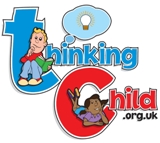 Thinking Child aims to produce creative resources and training opportunities for colleagues, children and parents. They have generously provided TA Focus with helpful guides for Teaching Assistants. Please read, share and give us any feedback on further topics you would like to know more about.
Thinking Child aims to produce creative resources and training opportunities for colleagues, children and parents. They have generously provided TA Focus with helpful guides for Teaching Assistants. Please read, share and give us any feedback on further topics you would like to know more about.
What should you do if you think a book is too difficult for a child?
One way or another there are many children who find themselves with a reading book that is too difficult for them.
There are lots of reasons why this happens including being ‘pushed’ up a reading scheme too quickly and ‘pushy’ parents who think that their child shouldn’t have a book that is ‘too easy’ (both of these are areas for separate discussion).
NB – I’m referring to books that children are expected to read by themselves – not other books that the teacher might choose for other reasons
I’m quite sure you have met such a child. They might be struggling at the decoding strategies – not breaking words down because they are too difficult, or finding the complexity of the sentences too challenging. These children are reasonably easy to spot. They are often quite stressed by the whole experience of reading.
A simple way of reaching judgements about the suitability of text.
| If 95% or more of the words are read correctly, the pupil can clearly read this level without help
|
|
| If 90-95% read correctly, the pupil will need help top make full use of a passage at this level: this is the correct level for guided reading and reading tuition.
|
|
| If less than 90% correct, the passage is too difficult and an easier one should be found.
|
|
Another way would be to ask a child to count the number of words they struggle with on the first couple of pages – if they use up all the fingers and thumb on one hand then the book is probably too difficult.
However – there are lots of other children whose decoding isn’t too bad and they seem to be a ‘fluent’ reader. But they might not be understanding very much of what they are reading.
If you think you are with such a child and being asked to read with them, try a few additional questions to see what they are actually understanding:
Ask them to point to parts of the text to show you where they are finding their answers. E.g. ‘Can you point to where it says….’ ‘Why do you think he decided to do …..?’ ‘That’s an interesting word – what do you think it means?’ Can you think of another word that is similar?’
If there is little comprehension, then a simpler text might be more suitable.
If you think a child is really struggling – are you able to mention this and/or help the child choose a more suitable book?
It needs flagging up. I see too many children struggling with books unnecessarily. Reading should be an enjoyable challenge – offering pleasure and small steps of achievement.
We risk children being turned off reading altogether if their continual experience is one of struggle and frustration.
I mean – would you keep doing something that you continually found tricky and made you feel like a failure??